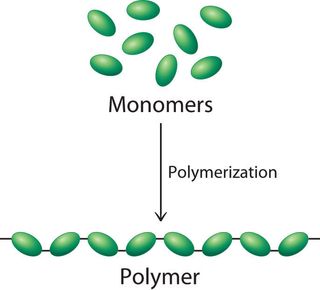Recognizing Polymers: The Scientific Research Behind Versatile Products
Recognizing Polymers: The Scientific Research Behind Versatile Products
Blog Article
Checking Out the Varied Applications and Advantages of Polymers in Different Industries
Polymers, with their varied range of residential or commercial properties and capabilities, have come to be crucial in numerous markets, each reaping one-of-a-kind benefits from their application. From boosting security and efficiency in the vehicle sector to changing medical tools in the health care sector, polymers play an essential role.
Automotive Market Applications
Polymers play an essential role in improving the performance and resilience of various components within the automotive sector. These functional materials are extensively used in the manufacturing of different components, varying from indoor parts to under-the-hood applications. One prominent use of polymers in the automotive sector remains in the production of light-weight parts. By replacing traditional steel parts with polymer-based alternatives, cars can accomplish enhanced fuel effectiveness without jeopardizing on strength or safety.

Healthcare Industry Benefits
In various medical care applications, the benefits of using polymers are widely acknowledged for their varied series of advantageous residential properties. Polymers play an important duty in the medical care industry because of their adaptability, biocompatibility, and cost-effectiveness. One of the primary advantages of polymers in healthcare is their capability to be tailored to certain needs, such as adaptability, resilience, and biodegradability, making them optimal for a vast array of clinical applications.
Polymer-based products are thoroughly made use of in clinical tools, such as catheters, implants, prosthetics, and drug delivery systems, because of their biocompatibility and ability to mimic natural tissues. These products can reduce the danger of allergies or denials, boosting client safety and security and results. In addition, polymers are light-weight, making them suitable for wearable clinical gadgets and making certain person convenience.
Furthermore, polymers make it possible for the advancement of ingenious therapy approaches, such as hydrogels for tissue design and nanocomposites for targeted medicine shipment. Their simplicity of processing and sanitation makes them vital for maintaining high standards of hygiene in medical care settings. Overall, the diverse benefits of polymers add significantly to innovations in medical modern technology and individual treatment.
Environmental Benefits of Polymers
:max_bytes(150000):strip_icc()/three-dimensional-model-of-polyvinyl-chloride-165874889-5c425ea7c9e77c000188be6d.jpg)
In addition, polymers can add to power financial savings as a result of their light-weight nature. In industries such as transportation, light-weight polymer materials can aid reduce fuel consumption and greenhouse gas exhausts. Furthermore, polymers can enable the advancement of energy-efficient items such as insulation products that enhance power preservation in structures.
Furthermore, polymers play an essential duty in reducing water contamination. As an example, using polymer-based filtration systems can successfully get rid of pollutants and contaminants from wastewater, securing water sources and communities. Generally, the ecological advantages of polymers make them beneficial properties in promoting sustainability and green practices across different sectors.
Polymers in Electronics and Modern Technology
Considering the increasing need for cutting-edge and sustainable services in contemporary markets, the assimilation of sophisticated polymer modern technologies in the realm of electronics and innovation has actually arised as a critical strategy for driving performance and performance. Polymers have actually changed the electronics sector by making it possible for the production of lighter, more adaptable, and long lasting electronic devices. From mobile phones to medical click this tools, polymers play an essential duty in enhancing item style and performance.
One significant advantage of polymers in electronics is their protecting residential or commercial properties, which help shield fragile electronic elements from environmental aspects and electrical disturbance. Additionally, polymers are necessary in the development of adaptable displays, wearable innovation, and printed electronics, offering limitless possibilities for producing smart and interconnected gadgets.
Furthermore, making use of polymers in digital packaging has actually resulted in advancements in miniaturization and thermal administration, improving the general performance and dependability of digital systems. As innovation remains to develop, the versatility and versatility of polymers will definitely drive even more innovation in the electronic devices industry, shaping the future of innovation.
Duty of Polymers in Building And Construction and Infrastructure
Polymers see here supply many benefits in the building and construction sector due to their flexibility, durability, and cost-effectiveness. One crucial function of polymers in building and construction is their use in coatings and sealers, giving protection versus environmental factors such as moisture, UV radiation, and deterioration.
Additionally, polymers play a vital function in lasting building and construction methods by enabling the growth of energy-efficient structures. Shielding materials made from polymers help manage indoor temperature levels, minimizing the requirement for heating and cooling systems and ultimately lowering energy consumption. Additionally, making use of polymer-based composites in infrastructure tasks such as bridges and roadways improves their durability and lowers upkeep prices. Overall, the unification of polymers in building and construction and facilities showcases their significant influence on modern-day design practices.
Verdict
In verdict, why not look here polymers play an important function in various industries such as auto, medical care, ecological, electronic devices, and building. From enhancing fuel effectiveness in lorries to enhancing medical gadgets, polymers use various benefits.
Report this page